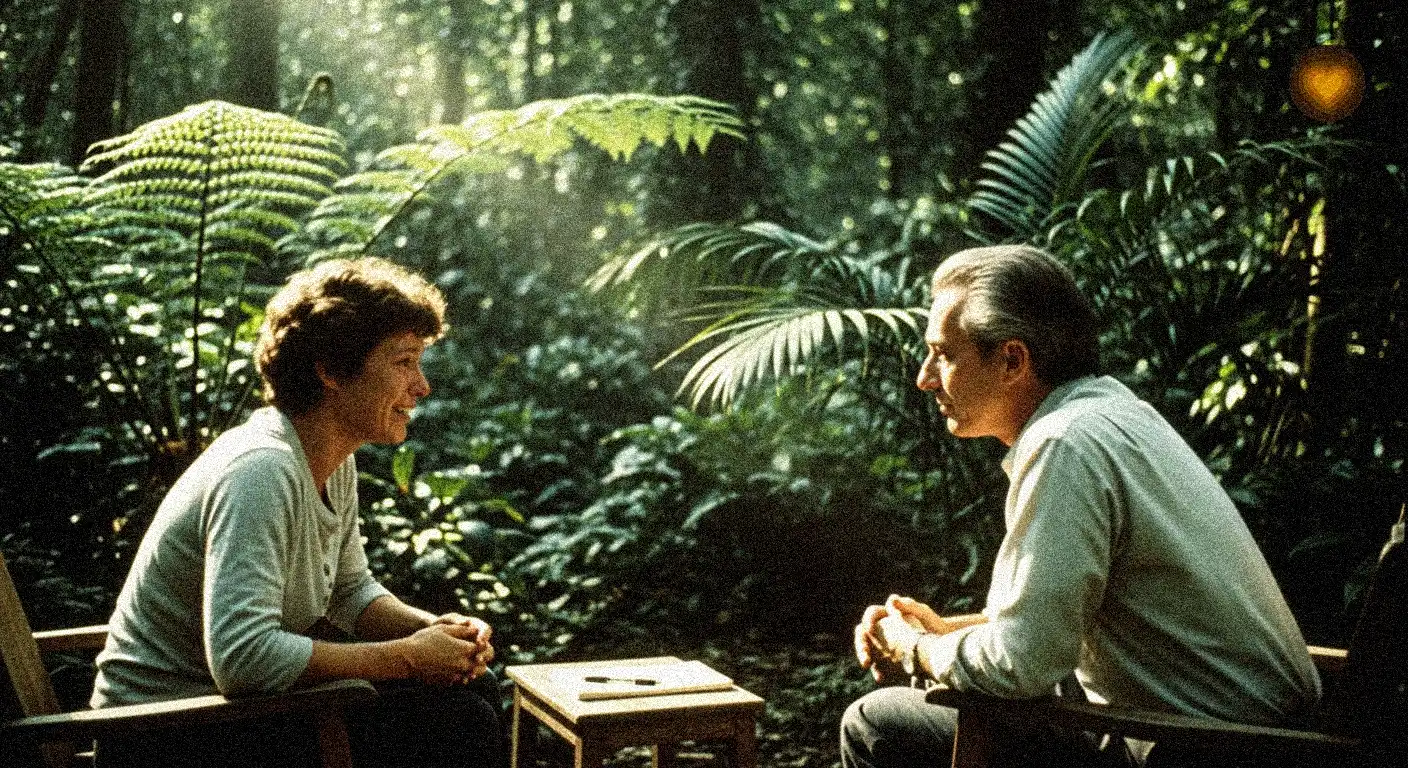Part 2: Defining Our Inner World - Spirit, Religion & Mind
In Part 1: The Quest for Flourishing - Ancient Roots of Mind, Spirit & Health, we journeyed through the deep historical and cultural significance of spirituality. Now, to explore how these elements come together for our well-being, it's helpful to get clear on what we mean by "spirituality," "religion," and "psychology." While they sometimes overlap, they each offer a unique lens on the human experience.
At Compassion Retreats, we find that clarity around these terms helps individuals better articulate their needs and intentions, whether they are seeking spiritual retreats or deeper wellness counselling.
Spirituality: Your Personal Quest for Meaning and Connection
Spirituality is often understood as a deeply personal journey – your individual search for answers to life's big questions about meaning, purpose, and your connection to something larger than yourself. It's that innate human spark that drives us to connect with the sacred or transcendent, whether that's a higher power, nature, universal principles, or a profound sense of interconnectedness with others and the world.
Key aspects of spirituality often include:
- Transcendence: Moving beyond purely personal concerns to connect with higher ideals or a sense of the sacred.
- Meaning and Purpose: The drive to understand why we're here and find a guiding purpose.
- Connectedness: Feeling a sense of belonging and union – with yourself, others, nature, or the transcendent.
- Inner Peace: Cultivating calm, balance, and harmony within.
- Values and Beliefs: Developing a personal compass to guide your actions.
- Self-Reflection: Looking inward to understand your identity, purpose, and thoughts.
What's beautiful about spirituality is its personal nature. You can define it for yourself, often separate from the specific rules or rituals of organized religion. It can be expressed in countless ways – through meditation, prayer, mindfulness, time in nature, creativity, or acts of service. Many find that our holistic healing approaches resonate with this personal quest.

Religion: Organized Systems of Belief and Community
Religion, while often spiritual, is typically more structured. It's generally seen as an organized system of beliefs, practices, rituals, and symbols designed to help people connect with the sacred or transcendent (like God, a higher power, or ultimate truth).
Key characteristics of religion usually involve:
- Shared Beliefs: A set of established doctrines about reality, the divine, and morality, often from sacred texts.
- Communal Practices: Shared ceremonies and forms of worship performed together as a community.
- Social Structure: A community of believers offering mutual support.
- Moral Codes: Explicit ethical guidelines for behavior.
- Institutional Framework: Often includes established institutions, leaders, and structures.
While spirituality can certainly be found within religion, you can be spiritual without adhering to a specific religion. Think of it like this: all religious paths aim to incorporate spiritual elements, but your spiritual journey can be entirely independent of any religious institution. Both can positively impact well-being, often through overlapping yet distinct ways.
Psychology: The Scientific Exploration of Mind and Behavior
Psychology is the science dedicated to understanding our minds, brains, and how we behave. It uses research to explore a wide range of human experiences, like how we think, feel, perceive, develop our personalities, and interact with others.
Historically, mainstream psychology sometimes distanced itself from spiritual or religious topics, aiming to establish itself as a rigorous science. However, that's been changing. Many branches of psychology now recognize just how important spirituality and religion can be for our mental health and overall well-being:
- Humanistic Psychology: Focuses on our potential for growth and self-actualization, often touching on spiritual themes of meaning.
- Transpersonal Psychology: Directly explores higher states of consciousness, spiritual experiences, and how to integrate spiritual insights with psychological understanding. Psychosynthesis, for example, includes a "Higher Self" and a "superconscious" realm from which our higher values arise.
- Positive Psychology: Studies human strengths, virtues (like gratitude and hope), and what helps us flourish – many of which are central to spiritual traditions.
- Cultural Psychology: Acknowledges how culture, including spiritual beliefs, shapes our minds and mental health.
Modern psychology increasingly sees spiritual beliefs as vital to many people's identities and coping strategies. The American Psychological Association even advocates for including patients' spiritual beliefs in holistic care when it's right for them. This reflects a growing understanding that true mental wellness means considering the whole person, including their spiritual dimension.
While psychology offers scientific frameworks, spirituality provides complementary paths rooted in ancient wisdom and direct experience. At Compassion Retreats, we believe that bringing these together – understanding the mind while honoring the spirit – offers a truly holistic and effective way to foster human flourishing. This integration is often a core component of the wellness counselling and spiritual retreats we facilitate.
Sources for this article
- Understanding Spirituality and Mental Health | McLean Hospital, [](https://www.mcleanhospital.org/essential/spirituality
- Cultural perspective on religion, spirituality and mental health - Frontiers, [](https://www.frontiersin.org/journals/psychology/articles/10.3389/fpsyg.2025.1568861/full
- The Science Behind Flourishing: How Psychology And Spirituality Align - UEF Foundation, [](https://www.uef.org/the - science - behind - flourishing - how - psychology - and - spirituality - align/
- What is Spiritual Psychology | Meridian University, [](https://meridianuniversity.edu/content/what - is - spiritual - psychology
- Nurturing the Soul: The Vital Link Between Spiritual Health and ..., [](https://woodlawnhospital.org/nurturing - the - soul - the - vital - link - between - spiritual - health - and - physical - well - being/
- eprints.whiterose.ac.uk, [](https://eprints.whiterose.ac.uk/208685/1/Bridges%20Study%20Outcomes_Revised%20unmasked%20manuscript.pdf
- Integrating Spirituality into Psychotherapy Practice in Mental Health: Ethical Issues, Challenges and Possible Way Out - SciSpace, [](https://scispace.com/pdf/integrating - spirituality - into - psychotherapy - practice - in - 1srjqhwf.pdf
- PDF) A New Evidence - Based Spirituality Framework for Mental ..., [](https://www.researchgate.net/publication/387583504_A_New_Evidence - Based_Spirituality_Framework_for_Mental_Health_Practitioners_A_Concept_Analysis_and_Integrative_Review
- Psychosynthesis: A Foundational Bridge Between Psychology and ..., [](https://pmc.ncbi.nlm.nih.gov/articles/PMC5493721/
Exploring your own definitions of spirit and mind? Our private retreats in Mexico offer a supportive space for your journey.





